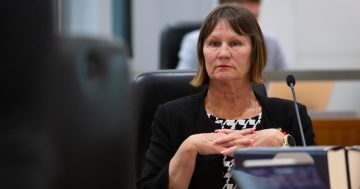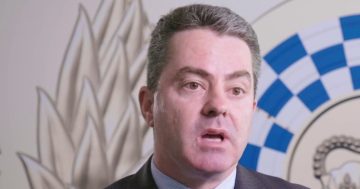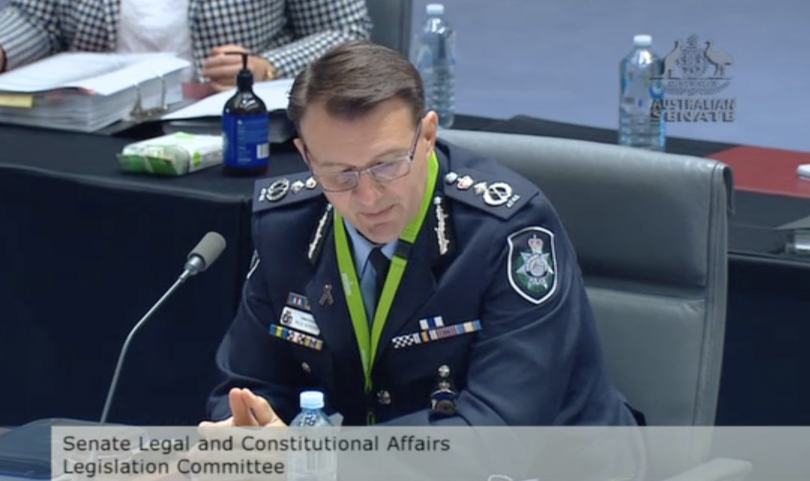
AFP Commissioner Reece Kershaw told a Senate Estimates committee the ACT could become a target for organised crime if drugs were decriminalised. Photo: Screenshot.
A proposal to decriminalise various amounts of drugs including cocaine, heroin, acid and MDMA would mean police are “busier” and could see the ACT become a target for organised crime, a parliamentary committee has been told this week.
Speaking at a Senate Legal and Constitutional Affairs committee earlier this week, Australian Federal Police Commissioner Reece Kershaw said the experience of overseas jurisdictions had shown there were many consequences to the decriminalisation of the drugs, including ‘narco-tourism’.
Under the current proposal from ACT Labor backbencher Michael Pettersson, people would not face criminal sanctions for possessing small amounts of certain drugs.
Instead, people caught with drugs for personal possession would only receive a fine and be diverted to a health program.
Currently, a person could be sentenced to two years in jail for the offence.
Mr Pettersson has previously said “the criminal justice system isn’t the deterrent we think it is”, given that after 100 years of prohibition, drugs usage rates have not gone down.
Commissioner Kershaw said the AFP would continue to give ACT Policing advice about the “unforeseen consequences” if the bill came into effect.
“It’s going to mean organised crime will want to target this community; in particular, because they can move their product quite easily,” he said.
“It just makes it more difficult for us to combat the rise of cocaine, methamphetamine and heroin use, and they’re not recreational drugs.”
Commissioner Kershaw said community safety and driving offences should also be taken into account.
ACT Liberal Senator Zed Seselja said he found the idea of these drugs being decriminalised “incredibly distressing” and “the last thing our city needs”.
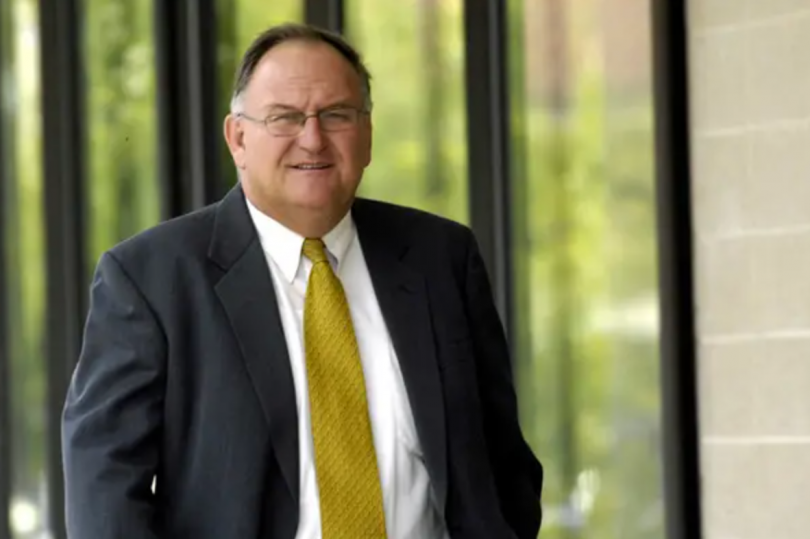
Former MLA and Leader of the Belco Party Bill Stefaniak previously came under fire for revealing his own drug use. Photo: File.
Commissioner Kershaw’s comments also came to the attention of former Canberra Liberals Attorney-General and current leader of the Belco Party, Bill Stefaniak.
Mr Stefaniak urged the Assembly not to decriminalise drugs but divert a person possessing small quantities of illicit drugs to a rehabilitation program in the first instance.
He also called on the ACT Government to conduct a “significant education campaign” on the harm of drug use.
Mr Stefaniak’s son was killed in a car accident in 2018 where the driver was drug-affected at the time.
He’s previously come under fire for making an admission of prior drug use to the drug decriminalisation bill inquiry in July.
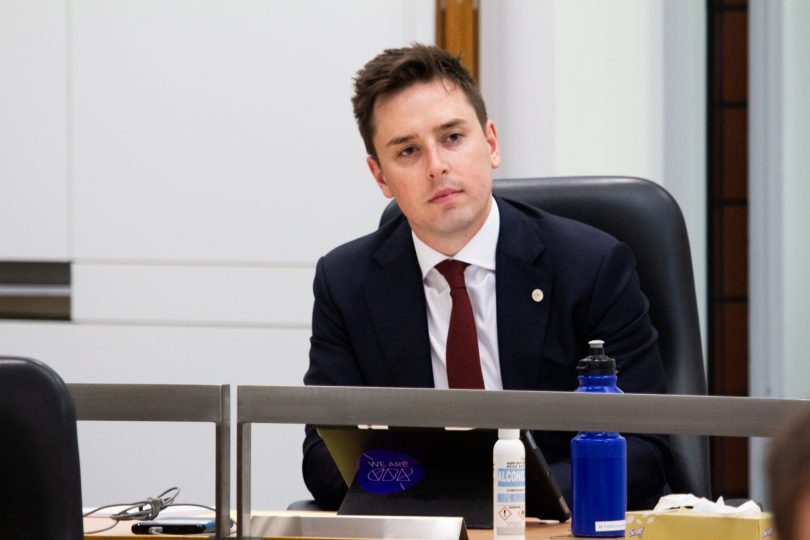
Labor backbencher Michael Pettersson introduced a bill to decriminalise various amounts of drugs. Photo: Dominic Giannini.
In its submission to the bill in June, ACT Policing said while they supported the principle of the proposal, they were concerned about the proposed threshold limits for some of the drugs and said further clarification, including around operational difficulties, was needed.
They also said drug trafficking could be an unintended consequence of the bill.
The full scope of Mr Pettersson’s proposal is still being determined as it is going through Assembly committees.
It will likely be presented to the Assembly at the end of this year. It would be the first of its kind in any jurisdiction in Australia.
Mr Pettersson also introduced the bill that legalised cannabis possession in the ACT which came into effect last year.













